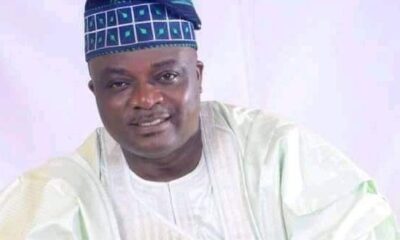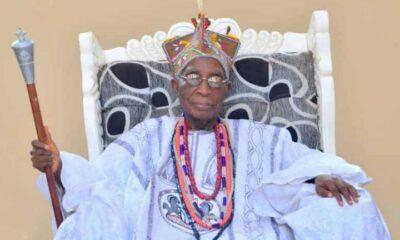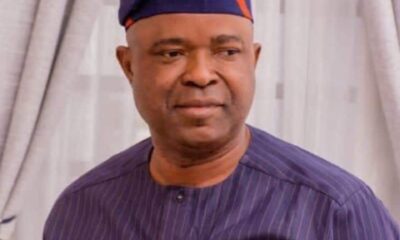News
Designer of Nigeria’s flag Taiwo Akinkunmi dies at 87

Designer of Nigeria’s flag Taiwo Akinkunmi dies at 87
The man who designed Nigeria’s flag, Michael Taiwo Akinkunmi (OFR), is dead.
Akinkunmi died on Tuesday at the age of 87.
His demise was announced via the Facebook account of one of his children.
He wrote, “Life is indeed transient; I can say boldly that you live a life with a landmark. Continue to rest, my father! Pa Michael Taiwo Akinkunmi (O.F.R.): Great Man has gone.”
Akinwumi, a native of Abeokuta, Ogun State, was born on May 10, 1936, but lived in Ibadan, Oyo State, until his death.
He attended Baptist Day Secondary School, Ibadan, for his Primary education and Ibadan Grammar School, Ibadan, for his Secondary education.
He started his career as a Civil Servant at the Secretariat of Ibadan and later travelled overseas to study Agricultural Engineering at Norway Technical College.
In 1958, during his stay abroad, Akinkunmi stumbled upon an advertisement in a national daily calling for the submission of designs for the Nigerian national flag in view of Nigeria’s imminent Independence from British governance.
His entry was adjudged the best among about 2,000 submitted entries.
The original design of the flag featured a white band flanked by two green ones, and a red sun with streaming rays was located on the white band.
The sun was eventually removed by the overseeing committee to produce the present design.
The flag was officially hoisted on Independence Day (October 1, 1960) instead of the British Union Jack.
Akinkunmi was awarded 100 pounds by the government when his design was selected.
He was honoured with the MON (Member of the Order of the Niger) Award by President Goodluck Jonathan administration.
News
Just in: Tinubu swears in Rivers Sole Administrator Ibas
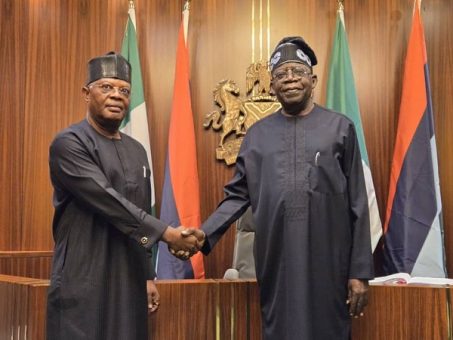
Just in: Tinubu swears in Rivers Sole Administrator Ibok-ete Ibas
President Bola Tinubu has sworn in Vice Vice Admiral Ibok-ete Ibas (Retd.) as the Sole Administrator of Rivers State.
The administrator was sworn in on Wednesday after a short meeting with the President.
Tinubu announced the appointment of the retired naval chief at a nationwide broadcast on Tuesday, when he declared a state of emergency in Rivers State and suspended Governor Siminalayi Fubara, Deputy Governor, Ngozi Odu, and the state House of Assembly members.
The President said his decision was based on Section 305 of the 1999 Constitution, saying he could not continue to watch the political situation in Rivers escalate without taking concrete action.
The suspension of Fubara and other elected representatives has been rejected and condemned by many eminent Nigerians, legal luminaries, groups such as Atiku Abubakar, Peter Obi, Femi Falana, the Labour Party (LP), the Peoples Democratic Party (PDP) and the Nigerian Bar Association.
However, the emergency rule has been praised by the pro-Nyesom Wike Assembly led by Martins Amaewhule, accusing Fubara of contravening the Supreme Court ruling on the political situation in the state.
Ibas was the Chief of Naval Staff from 2015 to 2021.
He is from Cross River State where he had his early education.
The new sole administrator went to the Nigerian Defence Academy in 1979 from where he proceeded to have a successful career in the Navy, rising through the ranks to the very top.
He is a member of the Nigerian Institute of International Affairs (NIIA) and the Nigerian Institute of Management.
President Muhammadu Buhari who appointed him as Chief of Naval Staff conferred him with the National Honour of Commander of the Federal Republic (CFR) in 2022.
News
Breaking: Tinubu declares state of emergency in Rivers State

Breaking: Tinubu declares state of emergency in Rivers State
President Bola Tinubu on Tuesday night declared a state of emergency in Rivers State following the protracted political crisis in the state.
Tinubu made the declaration during a nationwide broadcast, saying it is for six months.
He announced the suspension of the Executive Governor, Siminalayi Fubara, his deputy and all the members of the House of Assembly for six months.
He immediately named an administrator, Vice Admiral Ibok-Ete Ibas (Retd), to take charge of the affairs of the state for the six-month period.
Section 305 of the 1999 Constitution interprets a state of emergency as a situation of national danger or disaster in which a government suspends normal constitutional procedures to regain control.
A state of emergency allows the President to immediately make any desired regulations to secure public order and safety. (Channels TV)
News
BREAKING: Tinubu addresses Nigerians on Rivers political crisis

BREAKING: Tinubu addresses Nigerians on Rivers political crisis
President Bola Tinubu on Tuesday night will hold a nationwide broadcast to address the crisis in Rivers state.
Bayo Onanuga, special adviser to the president on information and strategy, said the broadcast will be transmitted by the Nigerian Television Authority (NTA) and the Federal Radio Corporation of Nigeria (FRCN).
The broadcast is expected to be held by 7pm today.
Video: President Tinubu has declared state on emergency on Rivers state effective immediately, suspends Governor Fubara, his deputy governor and house of assembly members for six months.
He also nominated an administrator pic.twitter.com/jD1g9FHOez— Nigeria Stories (@NigeriaStories) March 18, 2025
-
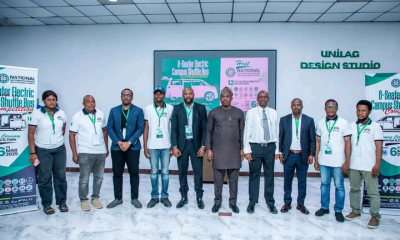
 Auto2 days ago
Auto2 days agoLanre Shittu Motors offers support for EV bus design competition in universities
-

 International1 day ago
International1 day agoUK announces new passport application fees starting April 2025
-
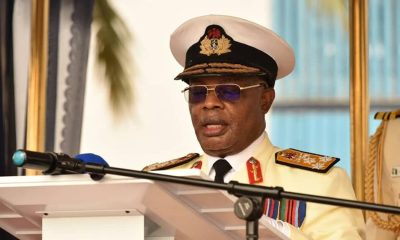
 metro2 days ago
metro2 days agoIbas: 18 things to know about Rivers administrator
-

 News3 days ago
News3 days agoBreaking: Tinubu declares state of emergency in Rivers State
-

 metro2 days ago
metro2 days agoSoldiers take over Rivers Government House after state of emergency declaration
-

 metro2 days ago
metro2 days agoPipeline explosion hits Bayelsa amid Rivers state emergency declaration
-
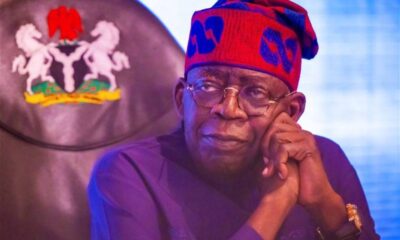
 News3 days ago
News3 days agoTinubu holds emergency meeting with service chiefs
-

 metro1 day ago
metro1 day agoCourt lifts order stopping Senate probe on Natasha Akpoti



